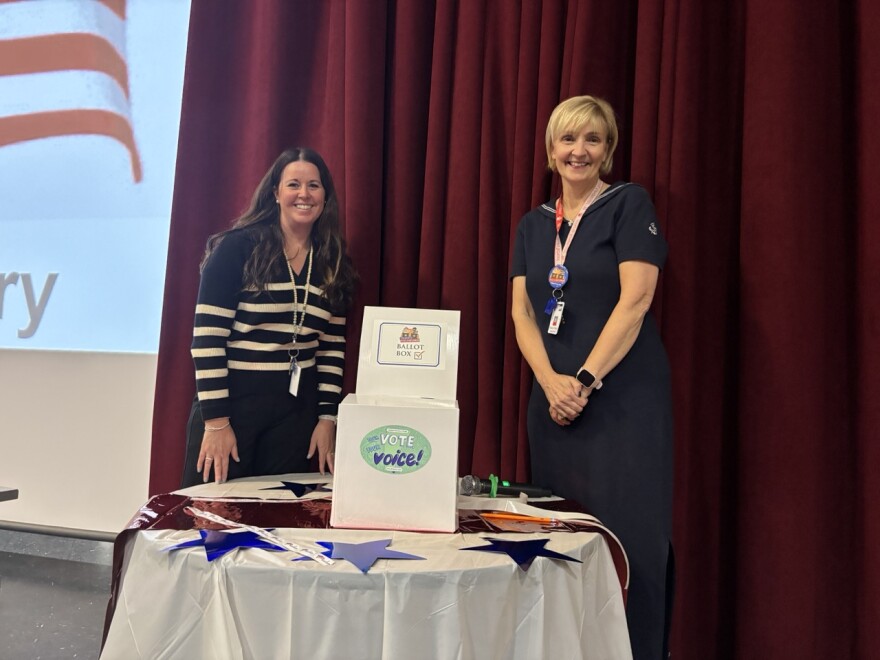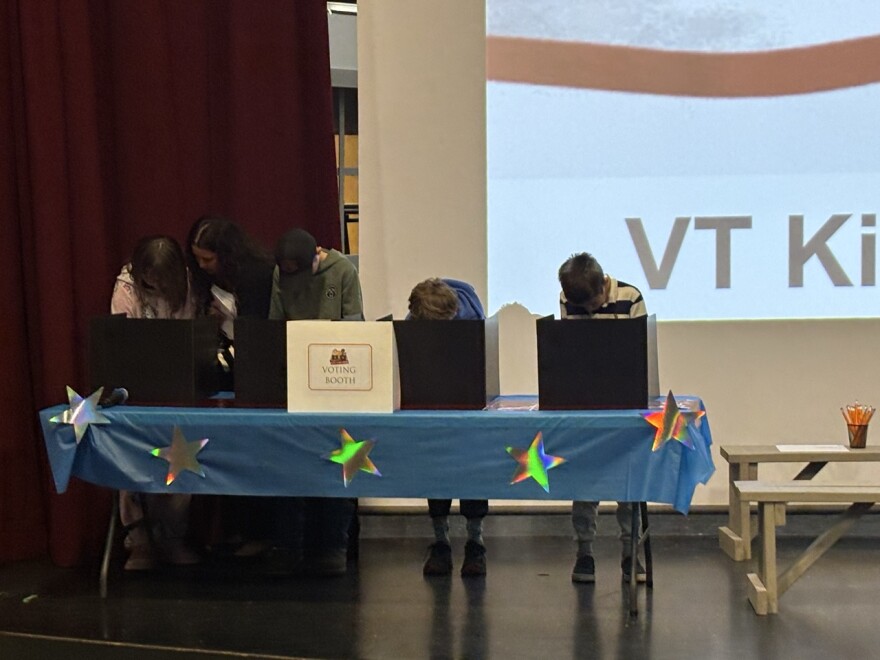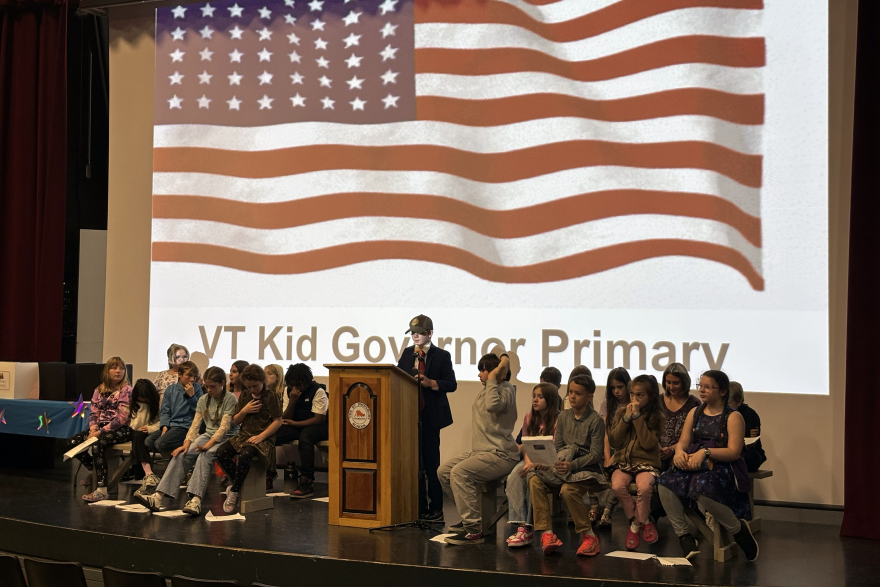ST. JOHNSBURY — A new state official is set to be announced this week: Vermont's first Kid Governor.
More than 1,000 fifth graders voted in the election. It’s all part of a new civic education program led by the Vermont Secretary of State's office.
Vermont is now one of a handful of states with a Kid Governor program, including Connecticut, New Hampshire, Nebraska and Oklahoma.

On Oct. 16, fifth graders at the St. Johnsbury School held a primary to elect their school’s nominee for Kid Governor.
Kara Abare was one of the candidates.
“I noticed a lot of things in Vermont, and some of them weren’t so good,” Kara said. “And I was like, ‘We need to fix that.’ So then I started running.”
The St. Johnsbury School is one of 65 Vermont elementary schools involved in the Kid Governor program.
“I noticed a lot of things in Vermont, and some of them weren’t so good. And I was like, ‘We need to fix that.’ So then I started running.”Kara Abare, St. Johnsbury School fifth grader
Any fifth grade class, including homeschool groups, can sign up to participate. Students learn about state government and elections using free materials provided by the Kid Governor program and the state.
Then, at some schools, students build platforms around an issue they care about. Student candidates campaign at their schools, and then seven finalists move on to a statewide election, where all the students vote.
The winner becomes Kid Governor, the six runners-up form a cabinet, and together they spend a year working with state officials to bring their ideas to life.

Robyn Palmer is the director of civic and voter engagement at the Office of the Vermont Secretary of State. She helped start the Kid Governor program in Vermont, and she and other state officials will work with the winning students after the election.
“We’ll have monthly meetings where we go over their platform and help them put it into practice,” she said.
“Our goal was to get seven schools signed on for our pilot year. And we got 65 schools signed on almost immediately, all across the state.”Robyn Palmer, civic engagement coordinator for the Vermont Secretary of State's office
Palmer said the Secretary of State’s office appreciates that the Kid Governor program is more than just reading about civics in a textbook.
“Yes, it’s learning about how elections work,” she said. “But really, it’s focused more on helping students identify a topic that they’re passionate about, and then think about ways that they can make a difference about it.”

Palmer said she’s been surprised by how much engagement the program has had in its first year.
“Our goal was to get at least seven schools signed on for our pilot year,” Palmer said. “And without that much work, we got 65 schools signed on almost immediately, all across the state.”
She’s also been surprised by the big issues students are addressing in their campaigns, like homelessness and food insecurity.
Kara Abare’s platform tackled one big issue — health insurance.
“About 20,000 people don’t have [health insurance] in Vermont, and that’s a lot of people,” she said.
Kara Abare’s classmate, Max Cloutier, also focused on health care.
“My dad was diagnosed with a disease that can’t be cured,” he said. “And my platform is to try and help the people who try to cure those diseases, to help them do their work.”

Pam Letourneau-Fallon is one of the fifth grade teachers at the St. Johnsbury School. She actually encouraged the Vermont Secretary of State’s office to adopt the Kid Governor program. She used to teach in Connecticut, where Kid Governor started.
She loves the program because of its hands-on approach and real-world application.
“This is not a pretend election,” she said. “The stakes are high. Their platforms will become a reality.”
She said the stakes are high for another reason, too.
According to Vermont’s 2025 Youth Civic Health Survey, fewer than 60% of Vermont youth say they plan to register to vote when they’re old enough.
“I believe the Kid Governor program is going to dramatically increase those numbers,” Pam Letourneau-Fallon said. “I can’t see any of these students not voting in elections moving forward. They’re invested.”
None of the St. Johnsbury students advanced to the statewide election for Kid Governor. Still, Kara Abare said, the process taught her a lot about leadership.
“A good leader, for me, it means making an example for yourself so others can look up to you and do the same things you’re doing,” she said. “Like, if you’re nice and kind, then they’ll be like, ‘Wow, I want to be like Kara,’ and then they’ll be nice and kind.”
The Secretary of State’s office is set to announce the election results on Nov. 19. The new Kid Governor will take office in January, following an inauguration ceremony at the Statehouse.
This story comes from a collaboration between Vermont Public and the Community News Service, a University of Vermont journalism internship.




